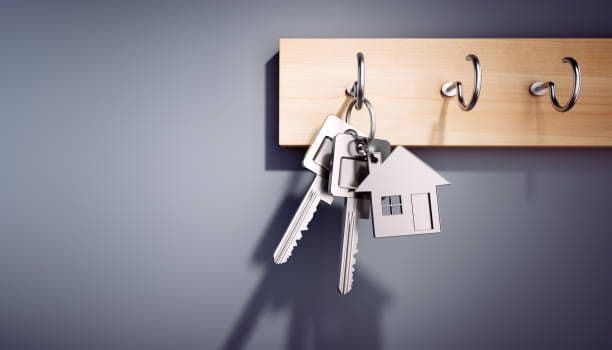
The Advantages of a Fixed-Rate Mortgage

A fixed-rate mortgage is a type of home loan where the interest rate remains constant throughout the life of the loan. This type of mortgage offers several advantages to borrowers, making it a popular choice among homeowners.
In terms of religious permissibility, there are differing views among Islamic scholars on the issue of fixed-rate mortgages. Some believe that it is not permissible as it involves paying a predetermined interest rate over an extended period, which is considered to be interest-based borrowing. However, others argue that it is permissible as long as the borrower and the lender agree on a fixed rate of return for the use of the lender's money, without any guaranteed profit or guaranteed interest rate. This is known as a "murabaha" transaction in Islamic finance, which is considered to be acceptable under Islamic law. Ultimately, it is up to the individual is mortgage halal or haram based on their own religious beliefs.
One of the biggest advantages of a fixed-rate mortgage is the predictability and stability it provides. Unlike adjustable-rate mortgages, where the interest rate can change over time, a fixed-rate mortgage offers the peace of mind that comes with knowing that your monthly payments will remain the same for the life of the loan. This makes it easier to budget and plan your finances, as you won't have to worry about sudden increases in your mortgage payment that could impact your financial stability.
Another advantage of a fixed-rate mortgage is that it protects you from interest rate hikes. If you have an adjustable-rate mortgage, an increase in interest rates can cause your monthly payments to rise, which could put a strain on your finances. With a fixed-rate mortgage, you don't have to worry about this happening, as your interest rate and monthly payments will remain the same no matter what happens in the economy.
A third advantage of a fixed-rate mortgage is that it is easier to understand and compare to other types of loans. With a fixed-rate mortgage, you know exactly what your interest rate will be and what your monthly payments will be over the life of the loan. This makes it easier to compare offers from different lenders and choose the best option for you.
In addition, a fixed-rate mortgage can also offer significant savings over time. If you lock in a low-interest rate, you can save thousands of dollars over the life of the loan. This is because you'll be paying a lower interest rate, which means that a larger portion of your monthly payments will be applied to the principal balance of your loan, reducing the overall amount you'll need to pay back.
Finally, a fixed-rate mortgage can also offer better security and stability in the long term. If you're planning to stay in your home for an extended period, a fixed-rate mortgage can provide you with the security and stability you need to build a strong financial foundation. With a fixed-rate mortgage, you'll have the peace of mind that comes with knowing that your monthly payments will remain the same for the life of the loan, which can help you build wealth over time.
In conclusion, a fixed-rate mortgage offers several advantages to borrowers, including predictability, protection from interest rate hikes, ease of understanding and comparison, savings over time, and better security and stability in the long term. Whether or not it is considered to be halal or haram is a matter of interpretation and varies among Islamic scholars, but it is worth considering the advantages of a fixed-rate mortgage when deciding which type of home loan is right for you.
The Pros and Cons of Adjustable-Rate Mortgages
An adjustable-rate mortgage, or ARM, is a type of home loan where the interest rate can change over time. This type of mortgage offers both advantages and disadvantages to borrowers, making it important to carefully consider the pros and cons before making a decision.
One of the biggest advantages of an adjustable-rate mortgage is that it can offer lower initial interest rates compared to a fixed-rate mortgage. This can make monthly payments more affordable, especially in the early years of the loan. This can be especially beneficial for borrowers who expect their income to increase over time, as the lower initial payments can free up cash flow for other expenses.
Another advantage of an adjustable-rate mortgage is that it can provide greater flexibility. If you expect to sell your home before the end of the loan term, an adjustable-rate mortgage can be a good choice as it allows you to take advantage of a lower initial interest rate while still giving you the option to sell before the interest rate adjusts. This can provide a greater degree of flexibility, especially if you're not sure how long you'll be staying in your home.
However, there are also several disadvantages to consider with an adjustable-rate mortgage. One of the biggest is the uncertainty of future monthly payments. With a fixed-rate mortgage, you know exactly what your monthly payments will be for the life of the loan. With an adjustable-rate mortgage, however, your monthly payments can change over time, which can make it difficult to budget and plan your finances.
Another disadvantage of an adjustable-rate mortgage is that it can be risky. If interest rates rise, your monthly payments will increase, which could make it difficult to afford your mortgage. This can be especially problematic if you're on a tight budget, as a sudden increase in your monthly payments could put a strain on your finances.
In addition, an adjustable-rate mortgage can also be more difficult to understand and compare to other types of loans. With a fixed-rate mortgage, you know exactly what your interest rate and monthly payments will be over the life of the loan. With an adjustable-rate mortgage, however, the interest rate can change over time, making it more difficult to compare offers from different lenders and choose the best option for you.
Finally, an adjustable-rate mortgage may not be the best choice if you're looking for stability and security in the long term. With a fixed-rate mortgage, you know exactly what your monthly payments will be for the life of the loan, which can provide a greater degree of stability and security. With an adjustable-rate mortgage, however, your monthly payments can change over time, which can make it difficult to build a strong financial foundation.
In conclusion, an adjustable-rate mortgage offers both advantages and disadvantages to borrowers, including lower initial interest rates, greater flexibility, the uncertainty of future monthly payments, risk, difficulty in understanding and comparison, and a lack of stability and security in the long term. It's important to carefully consider these pros and cons before making a decision and to choose the type of home loan that is best for your financial situation and long-term goals.
Appreciate the creator